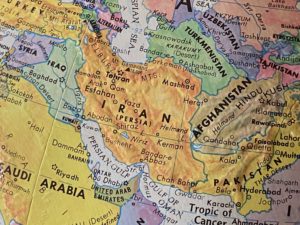Canada Should Honour Mahsa Amini’s Memory by Sanctioning Her Killers
Ratna Omidvar is an independent senator from Ontario who first proposed Canada’s asset repurposing laws in Parliament. Bill Browder is the head of the Global Magnitsky Justice Campaign. Brandon Silver is an international human rights lawyer and director of policy and projects at the Raoul Wallenberg Centre for Human Rights.

Sept. 16 marks the first anniversary of the murder of Mahsa Amini in Iran. Those who killed her should be sanctioned by Canada.
Brutally beaten to death by Iranian authorities for not abiding by their strict restrictions against women’s autonomy and dress, Ms. Amini’s murder sparked global outrage and solidarity with the women of Iran.
Iranian women continue their brave campaign for freedom, unveiling themselves as acts of peaceful protest, knowing full well they may share the fate of Ms. Amini for doing so. Imagine their reaction when they learn that their torturers are visiting family in Toronto and vacationing in Vancouver.
In one of his first acts as Minister of Immigration, Refugees and Citizenship, Marc Miller rightly recognized and redressed this injustice, banning Iran’s former health minister, a major rights violator, from his frequent visits to Canada. But this lets the bigger fish off the hook.
Ebrahim Raisi used to be called The Hanging Judge from his time personally overseeing executions of political prisoners. Mr. Raisi’s cruelty followed him into Iran’s presidency, where he is now crucial to the brutal crackdown against women. Canada’s allies have already sanctioned him for his crimes, making Canada a curious outlier.
Similarly, Iran’s Supreme Council of the Cultural Revolution was recently sanctioned by the U.S. and U.K. for designing the regime’s anti-women laws and demanding their violent enforcement. The fact that its leaders can visit Canada at their leisure is an affront to the dignity and equality of Canadians, and sends the wrong message to Iranians.
Canada should instead be communicating solidarity and extending support for Iranians through its sanctions systems. The new law on asset repurposing, which was first proposed by World Refugee and Migration Council members Allan Rock and Lloyd Axworthy and advanced by us in Parliament, is perfectly suited to address the situation.
Seizing assets is the natural next step after freezing them, and Iranian victims are the obvious beneficiaries. For those struggling to rebuild their lives in Canada after losing limbs or loved ones to the torturers in Tehran, it would be poetic justice for them to receive the proceeds of assets their persecutors have hidden away in Canada.
We support the Atlantic Council Strategic Litigation Project’s proposal for Canada to create a fund for Canadian-Iranian victims, which would facilitate community involvement from coast to coast in the decision-making process. With a broad and inclusive board of directors cutting across the Iranian diaspora in Canada, the fund would ensure transparency and grassroots engagement in the distribution of seized assets for medical, material and psychosocial support to victims.
This fund will also draw out all those Iranian-Canadians with credible evidence of crimes perpetrated against them or their loved ones. This would allow Canada to document and build cases toward prospective prosecutions. In the same way Ukrainian refugees are being interviewed by the RCMP regarding Russian crimes, and Iraqis and Syrians about the Islamic State, Canada should be gathering evidence from Iranian victims in the country.
Sanctions and asset seizures are powerful forms of accountability and restitution, but prosecution should not be forgotten. Those Iranian rights abusers enjoying the freedoms in Canada that they deprive their compatriots of at home should be the ones sitting in prison. Even if they are not in Canada, or a perpetrator cannot be identified, the evidence gathered from victims could be used in other trials that might take place around the world.
Canada played a crucial role in setting up the continuing United Nations Independent International Fact-Finding Mission on Iran, which would benefit from the support of evidence gathered by Canadian investigators. Canada also leads the annual UN General Assembly resolution on Iran, which receives overwhelming support from around the world every year in calling out the crimes of the regime in Iran and expressing solidarity with its victims. When the General Assembly meets next week, Canada can use this global diplomatic platform to strengthen sanctions co-ordination and implementation, and build further global support for strengthening investigations of perpetrators.
For all the innocent women whose lives and liberties they have taken away, Canada can secure justice and send a global message that its borders, banks and businesses are closed to Iran regime criminals. We must honour Mahsa Amini’s memory, and the courage of Iranian women, in sanctioning or jailing their abusers. This important moment of commemorating her murder must not only be an act of remembrance, but a reminder that we must act.
Read the op-ed in The Globe and Mail